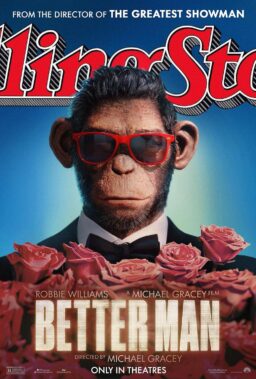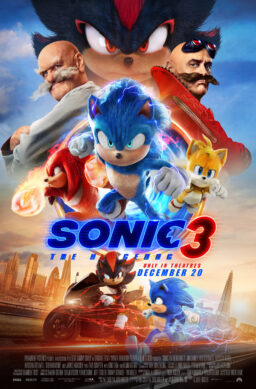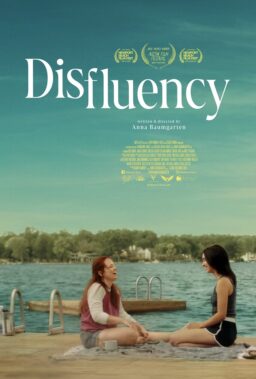As is true of many international film festivals (New York’s
being one notable exception), Venice has a competition, and this year
twenty-one pictures are competing. I’ve seen three so far, and it’s likely I’ll
see three more, maybe four, which would be about a third of them—not really
what you’d call a representative sample. I do know that the competition films
aren’t as rabidly scrutinized by journalists prior to the festival as the
Cannes competitions are; maybe because Cannes, Sundance’s January position
notwithstanding, signifies the beginning of festival season, and because
critics like to carp about the arguably old-school routines of Cannes’ heads.
In any event, the three Venice competition films I’ve seen
thus far are each exceptionally distinctive to say the least, and each one
represents a different mode of filmmaking. “The Danish Girl,” which I discussed
at length in my last entry, is the most conventionally polished and
self-consciously important of the three, and not without its rewards.
“Francofonia,” a new film from the Russian master Alexander Sokurov, on the
other hand, finds the 64-year-old filmmaker in a formally playful mood, doing
work that’s as elastic and freewheeling and unpredictable as anything he’s put
his name to.
The subject here is Paris’ Louvre, so, of course, the expected thing
to do would be some kind of variant of his amazing 2002 “Russian Ark,” an
exhaustingly elaborate single-take exploration of the Hermitage and the various
historical figures in its past. There’s a hint of the eccentricity of “Ark,”
what with Sokurov conjuring a Napoleon who walks through its corridors and
remarks “C’est moi” of every painting he takes note of, including Leonardo’s
“Giaconda.” But rather than re-attempt single-shot virtuosity, the director
here instead makes a choppy, multi-layered essay film, expanding and
contracting the screen, focusing intermittently on the fate of the Louvre
during World War II, when the German army and the bureaucrats and fascist
muckey-mucks above that army were eager to ransack its treasures, and how that
ransacking was prevented through an alliance between one Frenchman and one German.
The Frenchman being Jacques Jaujard, a head administrator of the Louvre, the
German Franz Wolff-Metternich, a rarity in the Nazi party: a man of ethics and
refinement, of both manners and aesthetics. In fictionalized footage Sokurov
delves into their dealings with each other and uses their story as a
springboard for a larger consideration of the horrors of European history and
art’s function within a historical context that can’t help but deliver a
withering verdict on mankind itself. It’s a truly bracing, provocative movie,
and of course, as is always true with Sokurov, it’s a visual feast.

The visuals in Drake Doremus’ “Equals” are, at the very
least, notable. At the beginning, they are very cool and contained. But as the
characters in the film change, new visual tones introduce themselves; a kind of
warning orange will encroach from one side of a frame, like a kind of alarm.
Once certain characters fully reveal themselves to each other, their flesh tones
warm up. That sounds neat, maybe, but as it plays on-screen it’s, well,
numbingly obvious. This is a movie that really nails the seemingly oxymoronic
phrase “profoundly dumb.”
Which rather let me down, as I am an admirer of Doremus’
heated, relatively acute portrayal of long-distance love and estrangement,
2011’s “Like Crazy.” This movie is something of a breakout for him, as it’s a
science-fiction story. A story of a faux-utopian future in which
emotion—especially that emotion that the girl groups and the New York Dolls
used to spell L-U-V—is outlawed. This future’s citizens are supposedly
genetically engineered to be tidy and robotic, and if they start getting the
feelings it means they have a virus called “Switched On Syndrome,” and they’re
gonna be exiled to a place called “The Den,” where they’ll be encouraged to kill
themselves. Really committed rebels will make their way to a wild territory
called “The Peninsula,” and…good grief, as I type this, I’m thinking all over
again: this is a “Mystery Science Theater 3000” movie. The fact that Doremus keeps a committed enough perspective and his cast keeps on a committed
straight face is, I suppose, commendable, but it also saps the movie of
whatever entertainment value it might have.
Am I being unfair? I was thinking I might: after all, two
films generally considered classics, one of which is a longtime favorite of
mine, take place in Futuristic Worlds Without Love. Godard’s “Alphaville,” of
course (my fave) and George Lucas’ “THX-1138.” But Godard’s film had a pulp
heart and a wicked sense of humor, while Lucas’ film had an admirable albeit
almost punishing austerity. And, by now, this concept has been tried out so many
times that one has to ask, especially when it’s an American movie: when,
exactly, in all of our history have their ever been social and political
conditions whose logical outcome would be a society in which emotion is
forbidden? I mean, at least Orwell’s vision in “1984” had the example of the
Soviet Union going for it. All “Equals” has got, conceptually and
intellectually, is (as far as I can tell) a couple of artistically inclined
bro-dudes (the screenplay is by Nathan Parker, from a story by Doremus) getting
worried about having their precious feels taken away from them by…something.
Something that’s against their feels. It’s a thoroughly solipsistic kind of
woolgathering, right down to the fact that in this scenario it’s the two
prettiest people in a given room (Nicholas Hoult and Kristen Stewart) who come
down with the “virus.” And whose skin tones come to life after they get down to
it. And who then proceed to act like…well, like the characters in “Like Crazy”
(right down to having lots of feelings while showering), until The Man (there
isn’t any “The Man,” actually—the bros didn’t really think things out that far)
comes for them.
The movie gives away its empty-headedness right off the bat.
The drones of each “Living Block” inhabit these empty spaces that fill up
accordingly when they choose to “eat,” “sleep” and “live.” When it’s “sleep,” a
horizontal module with a bed on it slides out from the wall, horizontally. When
it’s “eat,” a horizontal kitchen module also slides out from the
wall. And so on. Again, this looks super-futuristic and stuff, but if you’re
positing a future society in which some form of maximum efficiency is a goal, why
would you incorporate an apartment block design that wastes so much space? As
Crow T. Robot, I think it was, used to say on “MST3K,” “They just didn’t care.”
Or, rather, in this case, they did care, and cared deeply…just about the wrong
things.












